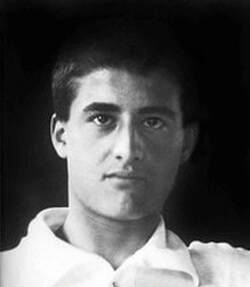 This past week, on July 4th, Americans celebrated Independence Day. That same day was also the feast day of Blessed Pier Giorgio Frassati, described as ‘a man of the Beatitudes’ at his beatification by another saint, Pope John Paul II. Bl. Pier Giorgio was honored for heroically living the beatitudes as well as for his passionate stance against political injustice. He is also remembered for his involvement in various spiritual organizations, being instrumental in the leadership of groups of young people who came together for prayer and fellowship. All of these actions are signs of one who truly wanted to live a life of service and sanctity. But the glue which held it all together, that one thing which truly made Pier Giorgio more than just a good man, was the humility that was at the core of his love for God and thus moved him outward in service to others. What one did not see, in other words, is what made Pier Giorgio holy. Bl. Pier Giorgio Frassati was born into a wealthy family in Turin, Italy on April 6, 1901. His father owned a popular newspaper and was also a diplomat and a senator in the Italian government. This indicates not only status, but that the family was relatively well known. Pier Giorgio always had a heart open to all people, especially the poor, but if one looked only at the setting in which he lived his life it would not be obvious to see where his love of God and his love for the poor came from: his well-to-do parents were not religious at all, nor did they encourage any kind of spiritual life. In fact, his parents had no clue that Pier Giorgio was ever involved in helping the poor or that he spent hours in prayer either at church or in his room. Only his sister Luciana was aware of some of what he did, and while he volunteered at a hospital for the indigent, many of his actions were hidden. He bought food, clothing, and medicine to give to anyone he knew was in need, regardless of who those poor were. His friends knew he was generous, but his compassionate deeds went largely unnoticed until his untimely death in 1925 at the age of 24. But if we look past the outward trappings of his life, we can see that Pier Giorgio cultivated his love for Jesus and gratitude for the gifts God have him through prayer and frequent reception of the sacraments of Reconciliation and Eucharist. He allowed grace to inspire him to seek and to find the love and mercy of God that impelled him into action as if he could not resist reaching out to the destitute with great care. Let us be clear: what he possessed, we also have been offered. God’s grace was not unique to Bl. Pier Giorgio Frassati, and therefore we can grow in holiness just as he did. 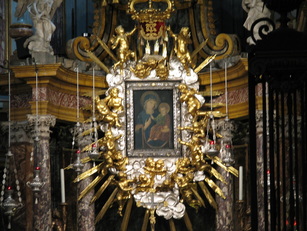 As I said, it was not only what people saw, but what they did not see that made Pier Giorgio Frassati a holy man. Though he was in church daily, the long hours he spent in prayer took place for the most part in private; what went on between Frassati and God will remain hidden forever, because he did not talk about it, nor did he write about the content of his prayer. Those who knew him recognized that he was always upbeat, but did not see his interior sufferings over the treatment of the poor, the burdens he carried in his hidden work, or his struggles due to the limitations put upon him by his studies. He was driven by love of God and never by ego. When his parents, especially his father, chided him because he did not seem to be amounting to their expectations for him, he accepted it in silence. He never told them what he was doing, but was content to let it remain concealed. His humility was so great that even in the illness that claimed his life, he said nothing of the great pain he was in, continuing to serve his family as he was actively dying. It was not until he literally collapsed on the dining room table, too sick to be saved, that anyone realized how ill he was. And as he lay in bed only hours from death his thoughts were of a poor man to whom he needed to deliver medicine! 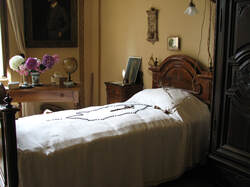 Bl. Pier Giorgio acted quietly, but never sought honors. And if honors came, he accepted them, but did not cling to them. He teaches us that true humility means our giftedness is to be used but not clung to or announced. Our gifts are only to be made visible through our actions which include selfless love such as living the beatitudes, having a heart for the poor (both the materially and spiritually poor), or through serving in ways that are so small that they are beyond notice. The humble do not trumpet their spiritual prowess, hours spent in prayer, deeds of service, or theological knowledge. Rather, the humble have so interiorized these things that they simply appear to come naturally, almost beyond detection except that when they leave a room, (so to speak) everyone within it is richer for their having been there. Of course, the deeds of holy people do become obvious at some point, but they are so natural to the humble that they do not think that they possess anything special, and in fact, tend to think that they are poor in humility or sanctity. They are holy not for the sake of being holy, but for the sake of love for Jesus and His call to live the gospel. Jesus emphasized humility throughout His ministry and there are numerous references to it in all four gospels. For example, He said: “The greatest among you must be your servant. Whoever exalts himself will be humbled, but whoever humbles himself will be exalted.” (Matthew 23:11-12) Truly this is at the heart of the gospel because it is only in humility that we can be like Jesus, the Son of God who became one of us and then laid down His life in the greatest act of humility ever offered. (Philippians 2:6-11) In other words, to love is to become as a humble servant. (See John 13:1-20) Even when we approach the Lord we do it with humility because we recognize that everything we have, and everything we seek, comes from Him alone. To recognize our sinfulness and to ask forgiveness are acts of humility, and when we allow Him to fill our hearts, to give us the graces we need to persevere and thrive, it is an act of humility which then propels us outward to others. We do not have to do anything overtly heroic to live a life of heroic sanctity. As we learn from Bl. Pier Giorgio Frassati, our lives can look exceedingly ordinary: he never worked a miracle during his lifetime, but enjoyed his friends, played practical jokes with regularity, loved outdoor activities, went to college, desired to be married one day and hence dated young women, and kept up his responsibilities at home and school. His passion for justice was anything but hidden, but the details of the work he did for the poor were known to God alone. He never sought recognition or honors and that was what enabled the cultivation of such a pure heart which beat totally for God. 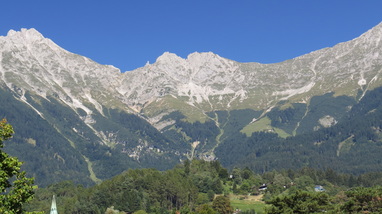 What we learn more than anything else is that if we want to grow in holiness we need to look to Jesus and His teaching both through our study and our daily prayer. He can teach us how to look outward to the situations of daily life and the people with whom we interact, whether our family, friends or strangers, in order to see who is ‘Christ in need,’ (a reference to Matt 25). We can allow God to form our hearts into ‘receptacles’ filled with mercy and compassion especially during this Year of Mercy in which there are so many reminders as to how to do this. We can respond to invitations to grace and also to action, realizing that it is in the little things done with great love that we are truly serving. We can look to holy men and women like Bl. Pier Giorgio and see how simply it can be done. And we can continually pray to have pride removed from our hearts; temptation to pride is insidious and often difficult to detect. Therefore we need to ask for the grace to see it for what it is and refuse its seduction. The wisdom of Blessed Pier Giorgio teaches us that if we seek Jesus first, all the rest of what we need to serve Him will follow. Let us aspire to be men and women of humility, desiring that which is not seen, so that we can make the love and mercy of Jesus more accessible and effective in our world. 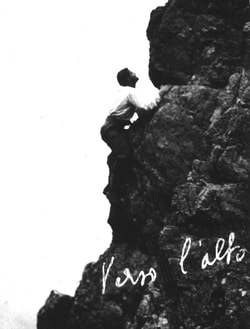 May we pray for the intercession of Blessed Pier Giorgio Frassati so that we may grow in sanctity through our prayer, love of the sacraments, and works of humble service! May we be inspired by the humility of the saints to respond to God’s grace with joy and gratitude! May we learn to see ‘Christ in need’ and respond with acts of kindness and generosity! May we have the perseverance to withstand the temptation of pride in all its forms, especially those which are most subtle! And in this year dedicated to Mercy may our hearts receive God’s mercy so that what we have received we may in turn give as a gift! Let us continue to meet in the Heart of Jesus! Verso l’alto! Peace! ©Michele L. Catanese “Verso l’alto” was Bl. Pier Giorgio’s motto. It means “to the heights” and is intended to be a call to do our best to attain the highest sanctity. Images: The first is a photo of Blessed Pier Giorgio, one of the most well-known of the many photographs of him. The next is a photo I took which is one of the 'spots' in which Pier Giorgio liked to pray in Turin. The painting is the Immaculata. He had a great devotion to Mary, as well as to the Eucharist. The third photo is also one of my own, taken in Pier Giorgio's bedroom in Pollone in the Frassati house near the Italian Alps. The bed is the one in which he died; he actually died in Turin, but the bed was moved to Pollone since the family home in Turin is no longer owned by the Frassati family and is now a bank. Fourth is an icon called Blessed Pier Giorgio Frassati by Fr. William Hart McNichols. I chose it for somewhat obvious reasons, but I will say that it is a favorite of mine because it draws ones attention to the 'loves' of Pier Giorgio. He was a Third Order Dominican and so you can see the symbol of the Dominican Order which is above his left hand. He is pointing upward, as if to say "Verso l'alto!" He is also indicating his beloved mountains; as mentioned in the text he was an avid outdoorsman and mountain climber. This icon can be found at http://fineartamerica.com/featured/blessed-pier-giorgio-frassati-197-william-hart-mcnichols.html Next is another of my photos, taken of the Austrian Alps surrounding Innsbruck, Austria. I have no idea if Pier Giorgio was ever in Innsbruck, but he always wanted to climb Mt. Blanc in the French Alps. Unfortunately, he did not live long enough to realize that dream. I thought this photo would reflect his desire to climb in the Alps in a symbolic way. Last is a photo of Pier Giorgio climbing in a rather dangerous spot, or so it seems. He apparently signed this photo with his famous motto, "Verso l'alto" so that is actually his handwriting on the picture. You can find all sorts of information on Bl. Pier Giorgio Frassati on the internet. I recommend Frassati USA: http://www.frassatiusa.org/ I also recommend going to their Facebook page to follow the journey of the relics (incorrupt body) of Blessed Pier Giorgio as it is being taken to Krakow, Poland for World Youth Day. Bl. Pier Giorgio has long been one of the patron saints of World Youth Day. https://www.facebook.com/FrassatiUSA/ Comments are closed.
|
Heart Speaks to Heart
|

 RSS Feed
RSS Feed

